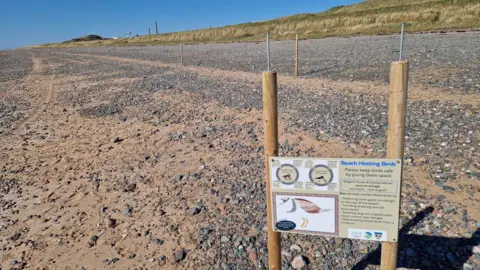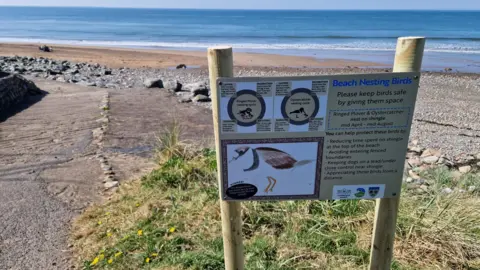Fence posts put up to protect beach-nesting birds
 RSPB
RSPBFence posts have been put up to protect beach-nesting birds along a stretch of coast where they have struggled to breed.
The posts are on the beach from Sellafield to Drigg, in West Cumbria, and are part of a RSPB project to safeguard common ringed plover and oystercatcher birds known to nest there.
The charity said the posts were "a visual aid" to remind people of the nests, as "any human activity" on the shingle at this time of year caused "nest failures".
The posts were topped by nails to prevent predators such as crows from using them as vantage points to look for prey, the RSPB said.
Steph Leow, the charity's beach nesting bird project officer, said: "Last year, I trialled just putting up signage at the car park and access points onto the shingle but these were largely ignored."
The beach had a high density of nesting birds, she added, but birds there were known to have a low fledging success.
 RSPB
RSPB"In the case for Sellafield-Drigg, the human activity is actually more detrimental than the predation," she said.
"Predators will largely take advantage of the adult birds being constantly disturbed off their nests by humans to pillage nests."
The posts will be in place until the end of August and people are urged to spend as little time as possible on the shingles and keep their pets under control.
